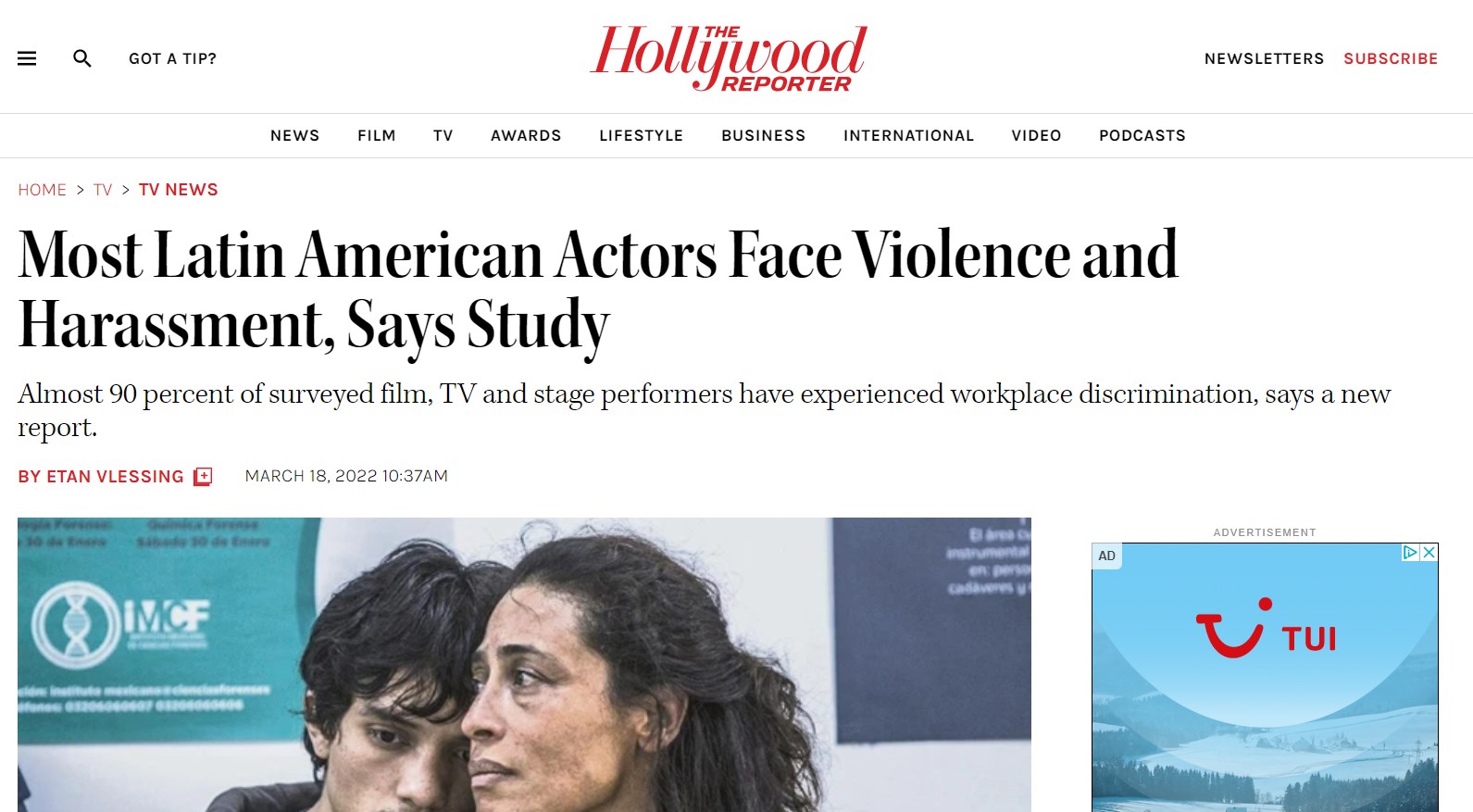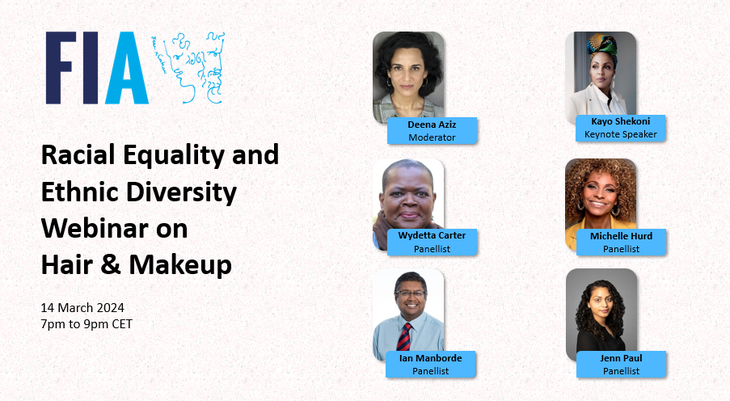Online article by Etan Vlessing
A new survey suggests the #MeToo movement appears to have had little impact on film, TV and performing arts workplaces in Latin America.
On Friday, a report from the UNI Global Union’s Media, Entertainment & Arts department and the International Federation of Actors (FIA) found 89.4 percent of respondents — representing mostly women and trans or non-binary workers — said they had experienced violence or harassment in their work environments. The survey of 1,423 workers mostly from Mexico, Brazil, Argentina, Chile, Colombia, Peru and Uruguay, and completed in late 2021, points to a persistent culture of sexism, discrimination, violence and harassment in Latin America’s screen and performing arts sectors.
“Violence against women and trans and non-binary professionals takes many forms in the work environment: harassment, sexual harassment, segregation, wage discrimination, hiring restrictions, glass ceiling, just to name a few. We urgently needed a clear and precise diagnosis in order to promote and adopt specific policies,” SUA Uruguay president and FIA vp Alicia Dogliotti said in a statement.
Around 81 percent of women and 76 percent of trans and non-binary respondents said they had experienced “micromachismo,” or felt they had been diminished, oppressed or excluded by male bosses or colleagues. And 37.4 percent of those surveyed said they had experienced sexual harassment at work.
The report added tackling sexual harassment in the film, TV and performing arts workplaces is complicated by a lack of a consensus in Latin America among different countries on its legal recognition. In Mexico, as an example, just over half or 54 percent of respondents said they had suffered sexual harassment in film, TV or performing arts workplaces.
And trans and non-binary people were found most likely to face exclusion in the workplace, with 73 percent saying they had been ignored or diminished by a manager or someone on their team, compared to 61 percent of women and 41 percent of men similarly reporting being ostracized.
Latin American workplaces have yet to tackle workplace violence or harassment, apparently, as 70 percent of respondents insisted whistleblowing could derail their careers.
“This is a very important investigation that involves several Latin American countries and will give us the knowledge to understand and confront workplace violence and harassment. There is a whole macho culture in Latin America that must be combated. Identifying forms of harassment is one way to do it,” Sonia Santana, president of Sindcine in Brazil and vp of UNI Media, Entertainment & Arts Americas, added in her own statement.
Full study and results available on the FIA Website here.





